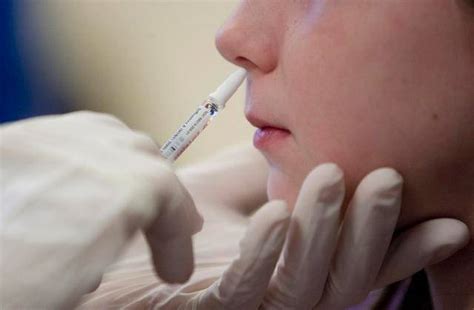
Dear Editor
In his rapid response, Dr Anand says “Are drugs, including vaccines and blood products, monitored conscientiously by the good doctors? I believe not.”[1]
I also have my doubts in regards to doctors conscientiously monitoring the growing number of vaccine products being pressed upon the community.
There are many vaccine products on the burgeoning vaccination schedule for children, including annual flu vaccination, and now fast-tracked coronavirus vaccination is looming.
Do any doctors wonder about the extraordinary number of vaccinations and revaccinations given to children nowadays? We have no idea of the long-term cumulative effects of this ever-increasing vaccine load.
I was astonished recently to read in The Guardian that children in the UK are given the nasal spray flu vaccine to protect their grandparents, even though children do not often get severe flu.[2]
This was acknowledged by Professor Peter Openshaw, from Imperial College London, one of the members of the UK’s Sage scientific advisory sub-group Nervtag, during a House of Lords science and technology committee meeting in June to discuss COVID-19 vaccine development.
And now there are plans afoot to vaccinate children against SARS-CoV-2/COVID-19 to protect the elderly.
According to The Guardian article “A vaccine against Covid-19 may not work well in older people who are most at risk of becoming seriously ill and dying from the disease…” and this “may mean immunising others around them, such as children”.
It’s been reported that most paediatric cases with laboratory-confirmed SARS-CoV-2 infection are mild and severe COVID-19 disease in children is rare. (See comment published in The Lancet Child & Adolescent Health[3])
How can it be ethical to vaccinate mass populations of children against SARS-CoV-2 to protect the elderly if most SARS-CoV-2 infections in children are mild, and severe COVID-19 disease in children is rare?
How can it be ethical to vaccinate mass populations of children against flu if children do not often get severe flu?
Vaccinations are medical interventions which have risks. It seems to me unethical to vaccinate someone against a disease which is not a significant threat to them to protect others, e.g. the elderly. This is a particularly serious matter to consider in countries which have coercive vaccination policies, e.g. Australia and the United States.
And now Reuters reports “AstraZeneca has been granted protection from future product liability claims related to its COVID-19 vaccine hopeful by most of the countries with which it has struck supply agreements…”
According to Reuters, Ruud Dobber, a member of Astra’s senior executive team, said “This is a unique situation where we as a company simply cannot take the risk if in…four years the vaccine is showing side effects”.[4]
So AstraZeneca has been granted protection from future product liability, and children around the world will be left with the risk of side effects in order to supposedly protect the elderly.
In my opinion this is not ethical.
What do doctors think about this, about vaccinating children with flu vaccines and future coronavirus vaccines to supposedly protect the elderly?
This is not to negate the risks of flu and SARS-CoV-2 for the elderly, but efforts should be concentrated on finding medications to help them directly, children’s right to their own natural defences should not be sacrificed in this regard.
Can Fiona Godlee and Rapid Recommendations editors please urgently consider this matter?
References:
1. on Fiona Godlee. We can change practice – can we also change culture? BMJ 2019;364:l108
2. Covid-19 vaccine may not work for at risk older people, say scientists. The Guardian, 24 June 2020.
3. The immune system of children: the key to understanding SARS-CoV-2 susceptibility? https://www.thelancet.com/journals/lanchi/article/PIIS2352-4642(20)30135-8/fulltext )
4. AstraZeneca to be exempted from coronavirus vaccine liability claims in most countries. Reuters, 30 July 2020.
